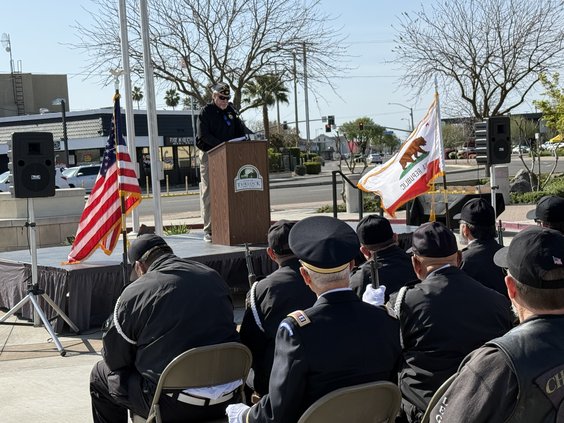The concern over the spread of monkeypox has reached Stanislaus County, as health officials announced Tuesday the first confirmed case in the area.
The case was confirmed in an adult male, according to the Stanislaus County Health Services Agency. The man is in isolation and has not been hospitalized. The health department was not revealing any other information about the man for reasons of medical privacy.
The health department said the risk to the public is low.
“The United States is currently experiencing a monkeypox outbreak, and there will likely be additional cases in Stanislaus County in the weeks ahead,” said Dr. Julie Vaishampayan, Stanislaus County Public Health Officer. “We ask our community members to learn about the symptoms and ways this infection spreads so they can take actions to protect themselves and others.”
Monkeypox is a virus that spreads person‐to‐person through direct contact with the infectious rash, scabs, or body fluids; respiratory secretions during prolonged, face‐to‐face contact, or during intimate physical contact, such as kissing, cuddling, or sex; and touching items (such as clothing or linens) that previously touched the infectious rash or body fluids.
Symptoms of monkeypox can include a rash that can appear anywhere on the body, flu‐like symptoms, and swollen lymph nodes. The current outbreak has included many people with lesions in the genital or anal area.
To protect yourself and others:
• Avoid close, skin‐to‐skin contact with people who have a rash that looks like monkeypox
• Communicate with potential partners about whether you are experiencing symptoms and avoid close physical contact with anyone who has symptoms, particularly open wounds, sores, or rashes.
• Do not handle or touch the bedding, towels, or clothing of a person with monkeypox.
• Wash your hands often with soap and water or use an alcohol‐based hand sanitizer.
• If you have symptoms or have been in close contact with someone diagnosed with monkeypox in the last 21 days, you should contact a healthcare provider to see if you should be tested.
• If you have an active rash, or other symptoms stay away from people or pets you live with when possible.
People typically recover in two to four weeks, and most do not require hospitalization. However, the disease can be serious, particularly for those who are immunocompromised, children, people with a history of eczema, or who are pregnant or breastfeeding.
In late June the Biden-Harris Administration announced the first phase of its national monkeypox vaccine strategy, which is to first provide vaccines across the country to individuals at high risk. This phase of the strategy aims to rapidly deploy vaccines in the most affected communities and mitigate the spread of the disease. They also announced increased testing sites around the country.
People who have symptoms of monkeypox should contact their healthcare provider. Before the visit, they should notify their healthcare provider that they are concerned about monkeypox and whether they recently had close contact with a person who had a similar rash or a person who has been diagnosed with monkeypox.
If you have been in contact with someone who has monkeypox, check with your healthcare provider for the next steps.









